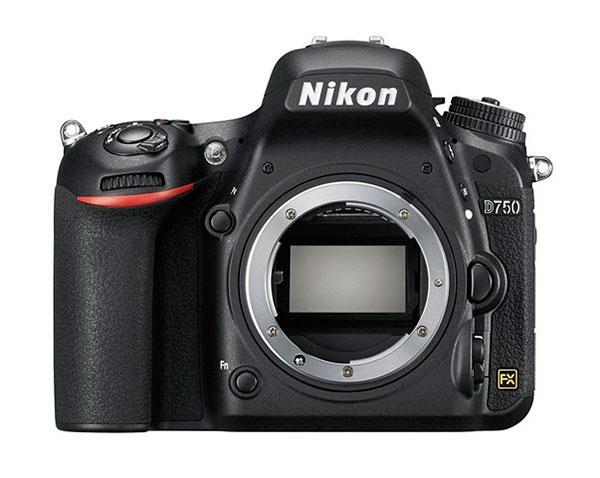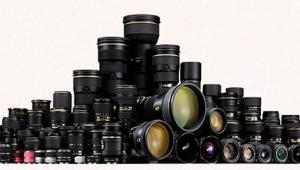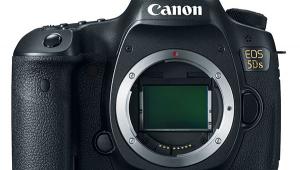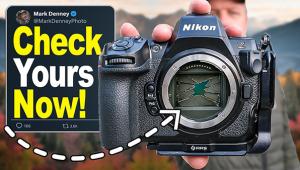What about not listening to requests from customers, like a new D400? A lot of us continue to what DX format cameras but would like an upgrade from the D300s.
Shutterbug Editorial: Nikon's Quality Control Problem

Stop me if you’ve heard this one before: another one of Nikon’s new full-frame digital SLRs has a problem. In this case, a small number of Nikon D750s have been producing a dark, shadowy band in the frame when capturing images with lens flare. While the issue was first reported by D750 owners who took to YouTube to demonstrate the problem, Nikon eventually acknowledged that the lens flare flaw was real and said it would offer free repairs. Last week, the company issued an official service advisory for the D750, saying that Nikon service centers needed to a adjust the camera’s autofocus sensor “to resolve the occurrence of unnaturally shaped flare.”
Problem solved? Possibly, but this issue and glitches with other recent Nikon DSLRs (D600: “dust/oil spotting,” Nikon D810: “bright spots during long exposures”) begs the question: does Nikon have a quality control problem? Before I address that rather sensitive topic, it’s important to note that all of these issues with recent Nikon DSLRs have been relatively minor and have only occurred in a small number of cameras in fairly atypical shooting scenarios. (This is not even close to the massive recalls the auto industry has seen in recent years for safety issues.) It’s also important to note that the problems with the Nikon D600 and D810 were eventually fixed (in the case of the D600, Nikon ended up shipping a whole new model), and it seems likely that the D750’s lens flare issues will be resolved too.
But disgruntled Nikon users must be feeling like glorified “beta testers” these days and I don’t blame them. Who wants to spend their hard earned cash on a pricey new camera only to find out it has a built-in defect? And why, does it seem, that users are always the first ones to catch these flaws? Shouldn’t Nikon’s internal testers spot the problems before the cameras go out?
These are all valid questions. But sadly, in a digital world where products with sensitive electronic components are replaced in 6 to 8-month product cycles, there are going to be a few lemons that come off the assembly line. (Just ask some of Nikon’s competitors who have dealt with their own quality control problems in the past. Remember the Canon 1D Mark III?) It’s a frustrating fact of life but don’t think Nikon isn’t aware that it needs to repair trust with some of its customers. In the wake of the recent problems with the D750 and other Nikon cameras, I reached out to the company to see if anyone there could address these perceived quality control problems and say what the long term plan was. Here’s the response I received:
“Each product is tested to adhere to Nikon’s quality control standards and we take the experience of our customers very seriously,” Masahiro Horie, Director of Marketing and Planning for Nikon Inc. wrote back. “We continue to refine quality control standards to address rapidly advancing technology changes, to implement improvements, and provide photographers with exceptional Nikon products.”
While that’s not exactly a mea culpa or a solution, the company does seem to be listening now. The biggest shame in all of this is that these continuing problems have overshadowed what, on the whole, have been some excellent products from Nikon. We reviewed the Nikon D750 in our January 2015 issue and, generally, loved it. We also quite liked the Nikon D810. But unless Nikon starts “sweating the small stuff” and fixes the problems before the cameras comes out, it might find itself with fewer customers to enjoy its successes.
- Log in or register to post comments

I was getting ready to write a blog about this same subject. I recently bought a D610, after owning a D7000 happily for many years. The screen on the back of the D610 is polarized in the wrong direction and it was not possible for me to see the image with my sunglasses on without turning it 90 degrees. As an outdoor photographer in Colorado that made the camera very difficult to work with. When I approached Nikon about it they told me, "it sounds like the wrong camera for you, you should return it". For one of the top optic companies in the world to polarize the screen in the wrong direction is inexcusable. And by making it seem like my personal problem, they almost lost a life long customer. All sunglasses are polarized in the same direction, and none of their other cameras have this problem, not my D70, D90, D7000, D750, nor the D810. It was the only full frame Nikon I could afford. I tried to keep using it, but it was just wrong. I returned the D610 and pulled together buying the D750. Now three months later my D750 is in New York being serviced, I fear the company is sliding down hill and I have too much invested in my Nikon lenses to take that lightly.

Nikon's not listening. They push faulty full frame cameras and full frame glass and think verry little about those who don't need it. DX line is clogged with 18-xxx lenses and an army of cameras that do the same thing. DX primes are non existent, mirrorless is a joke. Sold my full frame and my DX and dropped Nikon for that reason. I see that happening a lot. Nikon is going all in with the dslr concept, a specially FF but I don't think it's going to bring dividendes. That time is over.

For decades the Big Three US auto companies dumped their products on the consumer and let us beta test them for problems. We know how well that worked. Nikon has already lost a lot of loyalty with its cynical marketing and misjudging/ignoring demand, if they continue releasing faulty--and very expensive--products, they might as well sell themselves to Canon or Sony and call it quits.














































